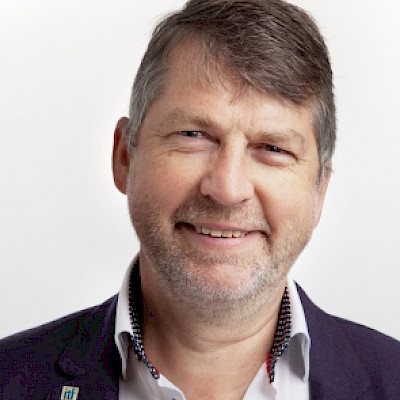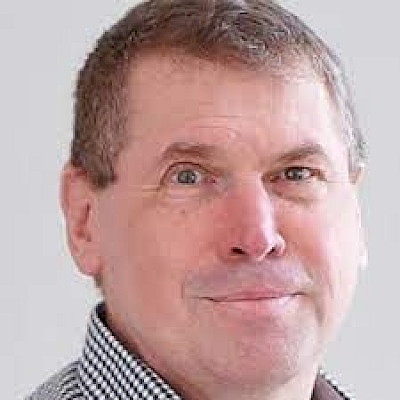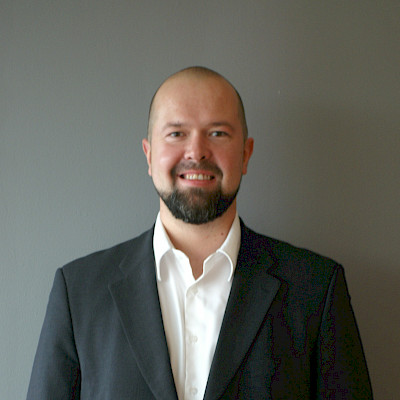Keynote-puheenvuorot
Automaatiopäivät 2023:lla on ilo esitellä kolme keynote-puheenvuoroa:
Jerker Delsing, Krister Forsman ja Sakari Pahkala

Jerker Delsing
Microservice the way to create evolvable automation Systems!?
The world is struggling to implement Industry 4.0 while the front runners already discussed Industry 5.0 both driven by short and long term green and sustainable societal requirements. This calls for foundational automation technologies having flexibility and evolution as a key properties. This to enable automation life times beyond one or two decades.
Prof. Jerker Delsing received the M.Sc. in Engineering Physics at Lund Institute of Technology, Sweden 1982. In 1988 he received the PhD. degree in Electrical Measurement at the Lund University. During 1985 - 1988 he worked part time at Alfa-Laval - SattControl (now ABB) with development of sensors and measurement technology. In 1994 he was promoted to associate professor in Heat and Power Engineering at Lund University. Early 1995 he was appointed chaired professor in Industrial Electronics at Lulea University of Technology where he currently is chaired professor in Cyber Physical Systems. His present research profile can be entitled IoT/SoS Automation, with applications to automation in large and complex industry and society systems. Prof. Delsing and the EISLAB group http://www.ltu.se/eislab has been a partner of several large EU projects in the field, e.g. Socrades, IMC-AESOP, Arrowhead (coordinator), FAR-EDGE (WP lead), Productive4.0 (WP lead) and Arrowhead Tools (coordinator).

Krister Forsman
Process control should move from complex to simple
In chemical industry plant wide control and real time optimizers play an important role in maximizing plant efficiency. In academia such schemes are almost by default assumed to be model based. In practice, however, model based control offers many challenges, and it is not always the best option. I will give industrial examples of how classical control elements can be used to achieve similar results with much less effort. Furthermore we discuss opportunities and problems with models derived from machine learning and AI algorithms when they are to be used for feedback control. I will also describe how concepts from graph theory are useful in solving the "flow assignment" problem. By this I mean selecting which flows should be set fixed and which ones should be used for inventory control in a plant with complex flow topology.
Krister Forsman has more than 25 years of practical experience from process control, industrial IT and advanced analytics in industry, primarily the chemical and pulp and paper industries. He received his PhD in mathematical control theory in 1991, from Linköping University, Sweden. After ten years in various positions within the ABB group, working with pulp and paper control applications, he ran his own consulting company for a few years. In 2005 he joined the Perstorp group as a Corporate Specialist in Process Control. Krister has worked with around 60 different plants in some 20 countries. He has authored over 50 articles and conference papers in process control and related areas, and a textbook in practical process control. He has given several invited plenary talks at conferences. Since 2012 he is also an adjunct professor at the Department of Chemical Engineering at the Norwegian University of Science and Technology. His main research interests include plantwide control and structures for industrial control applications as well as machine learning applications for process industry.

Sakari Pahkala
Production digitalization paving the way for green transition
Digitalization and green transition are highlighted development areas for manufacturing industries today. A smart factory with efficient and stable production and high quality products is a sustainable way to reach the goals connected to green transition like improved energy efficiency and reduced carbon footprint. But it’s not only about data and technology, you also need to have a comprehensive change program in place together with people competence development in order to achieve the goals. This presentation gives an overview of SSAB Europe’s journey in production digitalization development and how it paves the way for green transition.
Sakari Pahkala, Head of Strategic Automation and Digital Development, SSAB, M.Sc (Oulu University, Process Engineering) has over 20 years of experience and understanding of metal and mechanical engineering industries business operations and performance drivers across technology and management lines. Currently he is driving production digitalization development within SSAB Europe with a focus on strategic initiatives connected to production units in Finland and Sweden.